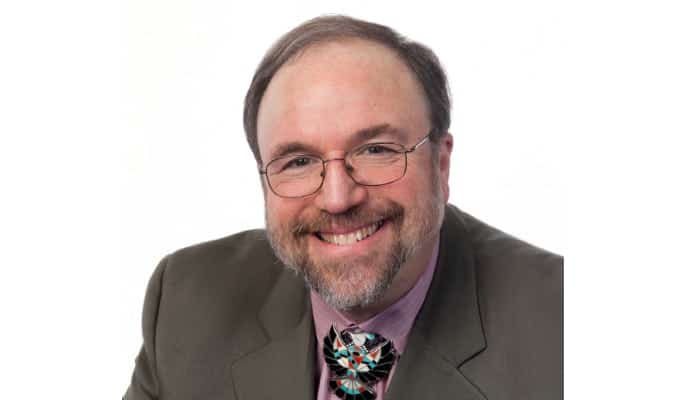Much to the gratitude of his cancer and other patients, medical doctor and immunologist Jesse Stoff’s life did not turn out as he had planned. While he was living his dream of being a country doctor in the Berkshires, he got a prescient call from world-renowned surgeon and best-selling author (Love, Medicine and Miracles) Bernie Siegel, who had read Stoff’s paper on chronic Epstein-Barre Syndrome.
Siegel wanted to send a patient from Yale-New Haven Hospital that the oncologists there had failed. Stoff brought her into remission along with other “hopeless cases” that Siegel sent him over the years. It was then that he decided to get a further education, studying immunology with several masters.
These days Dr. Stoff is known internationally and has many initials after his name: MD, HMD, FAAFP, DABAM, FAPWCA – and extensive credentials in immunology, naturopathy, homeopathy, acupuncture and holistic medicine. He has authored/co-authored dozens of articles and eight books including the bestsellers Chronic Fatigue Syndrome: The Hidden Epidemic and The Prostate Miracle. At his Riverhead office he treats allergies and at his Westbury office he treats patients with cancer, AIDS, COPD, Chronic Fatigue Syndrome, post Lyme syndrome and host of autoimmune diseases.

Stoff focuses on both disease prevention and alternative therapies. He has a four-pronged approach in which he gathers information about the patient before determining treatment. Unlike conventional medicine’s one-size-fits-all approach where, for example, most ovarian cancer patients receive the same platinum-based chemo, Stoff treats each patient individually. “I have a dozen breast cancer patients out there,” he says, indicating the treatment room. “And they are all on different protocols.”
He first sends tumor slides to a lab that renders a molecular profile of each patient’s particular cancer cells. This “precision medicine” approach allows him to identify biomarkers that indicate molecular abnormalities and allow him to evaluate treatment options. “I need to know what the cancer is trying to do.” He believes that this personalized strategy, based on the unique molecular characteristics of each patient’s cancer, increases the chances of selecting an effective treatment to improve patient outcomes. There are many “alternative” oncologists who use this test.
Next, he finds out what’s going on biochemically to support or compromise the immune system. If, let’s say, the adrenals are exhausted, he needs to know. He also looks at “what’s going on with the structure and function of the immune system” so that he can repair it. Without a functioning immune system the patient will otherwise, he believes, be on a never-ending treadmill. “Cancer is an immune-deficiency disease and the only thing that can keep pace with its mutations is the immune system,” he says. “The number one indicator of risk of recurrence is immune function.” He’s had very ill patients who had never had their immune system looked at before seeing him.
Of course, he also looks at lifestyle. Is the patient drinking plenty of water? Eating organically? Going to sleep no later than 10 PM to maximize his Circadian rhythm? Healing takes place in the body mainly between 11 PM and 1 AM.
His tool chest includes biological therapies (including stem cell activators), immune-active agents that work effectively against metastatic lesions and nutritional supplements and detoxifiers to reconstitute the immune system, to name a few.
In short, he addresses the causes rather than the symptoms of ill health.













!['The Maples' is a prestigious generational compound of two extraordinary estates: 18 Maple and 22 Maple. This rare offering, designed by luxury architect Lissoni partners New York and developed by visionaries Alessandro Zampedri-CFF Real Estate and JK Living, redefines opulence with the highest quality of craftsmanship and captivating views of the Atlantic Ocean. Represented by @nycsilversurfer and @challahbackgirl of @douglaselliman. [link in bio]](https://hamptonsrealestateshowcase.com/wp-content/uploads/sb-instagram-feed-images/438891010_1083749139481747_7890082604579275354_nfull.jpg)
![Featuring 360-degree water views on Mecox Bay, the Atlantic Ocean and Channel Pond, 1025 Flying Point offers the ultimate beach cottage that is flooded with natural light. With panoramic views, proximity to the ocean, and a private walkway to Mecox bay for kayaking or paddle boarding, this truly is a special retreat. Represented by @ritcheyhowe.realestate and @hollyhodderhamptons of @sothebysrealty. [link in bio]](https://hamptonsrealestateshowcase.com/wp-content/uploads/sb-instagram-feed-images/438994305_737511778456166_4602476013493875279_nfull.jpg)
![Attention advertisers! 📣 Secure your spot in the highly anticipated Memorial Day edition #HRES. Reach thousands of potential clients and showcase your brand in one of the most sought-after publications in the Hamptons, NYC, Palm Beach, and beyond. Contact us now to reserve your ad space! [link in bio]](https://hamptonsrealestateshowcase.com/wp-content/uploads/sb-instagram-feed-images/438549843_275102939023235_6718257301437562124_nfull.jpg)
![You eat with your eyes, and on the East End, it’s important that what you eat looks just as good as how it tastes. At @rosies.amagansett, the restaurant itself is plenty photo-worthy with blue ceramic tiling and yellow and white striped fabric wallpaper. But for a dish that will light up your photos, head directly to the salmon tartare! [link in bio]](https://hamptonsrealestateshowcase.com/wp-content/uploads/sb-instagram-feed-images/437094269_7296727147115953_1594410326824303644_nfull.jpg)

![We were honored to be the media sponsor for @blackmountaincapital's open house event with @jameskpeyton and @jfrangeskos at 11 Dering Lane in East Hampton! Other sponsors included @landrover, Feline Vodka, @rustikcakestudio, @la_parmigiana, @lahaciendamexicangrill11968, @homesteadwindows, Stone Castle, @talobuilders, and @thecorcorangroup.
A big thank you Carrie Brudner of Black Mountain Capital for putting together this fabulous event! [link in bio]](https://hamptonsrealestateshowcase.com/wp-content/uploads/sb-instagram-feed-images/437081213_762912965932136_6847332836522786568_nfull.jpg)

![Blooms Galore at the Long Island Tulip Festival! 🌷✨ Mark your calendars for April 15th as the vibrant tulips at @waterdrinkerlongisland burst into full bloom! Enjoy a day filled with colorful splendor, food trucks, live music, and more. [link in bio]](https://hamptonsrealestateshowcase.com/wp-content/uploads/sb-instagram-feed-images/437083429_974242677583725_6855805712693638343_nfull.jpg)
